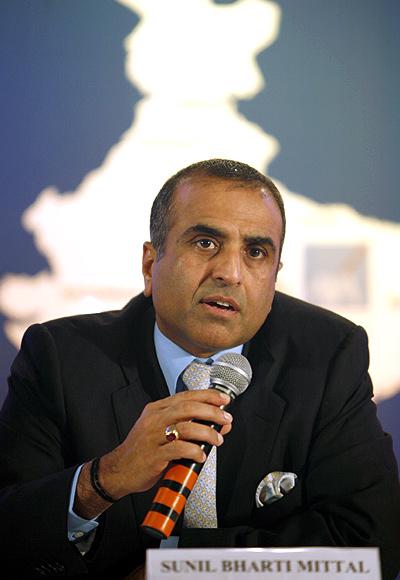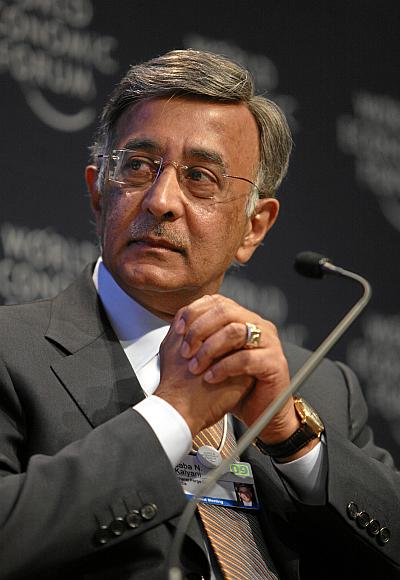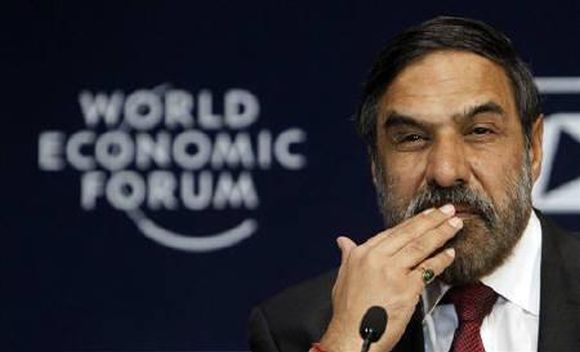 | « Back to article | Print this article |
Why global companies are betting big on India
Global businesses still believe that India consumption story is intact despite the slowdown of the past couple of years.
It is hard to find a chief executive at a homegrown company who is hugely optimistic about the short- or even medium-term future.
Few are investing in new capacity; indeed, all too many of them are busy hawking assets in an effort to write down excessive debt on their companies' books.
Whether it is Adani or DLF, Tata Steel or Reliance Communications, GMR or Videocon, Jet Airways or Kishore Biyani's Future group, the story is the same.
Indeed, many Indian entrepreneurs decided quietly in the last few years that they were better off investing in other markets.
Bharti went into Africa, Tata went into Britain and Europe, and Mahindra into Korea and the US, while the Ruias of Essar went completely global and located their holding company in the Cayman Islands, if you please!
Click NEXT to read more...
Why global companies are betting big on India
Somewhat smaller groups - Avantha, TVS, Bharat Forge and the like - also invested overseas. Soon some groups had more of their business outside India than within.
But take a look at international firms, and the picture could not be more different. Despite their running battles with the taxman, many global giants can't seem to get enough of India.
Unilever wants to increase its stake in its Indian subsidiary, just as GlaxoSmithKline, Siemens and others have already done.
Japan's consumer products giants Sony and Panasonic are committing themselves afresh to the Indian market, after having ceded the first-mover advantage to Korean rivals.
Energy giants like BP and Shell are planning new investments, while a retail investment push may begin soon, with Walmart, IKEA and possibly Tesco queuing up.
Click NEXT to read more...
Why global companies are betting big on India
Conglomerates like General Electric and United Technologies see their many Indian businesses continuing to grow well and are investing more, even as car companies from Ford to Suzuki and from Mercedes Benz to Hyundai are undeterred by two years of sluggish sales and planning massive new investments in capacity, in the firm belief that India will become not just the second-biggest car market but also an export hub.
There are good reasons for this dual trend. Global businesses that survey the world scene see demand shrinking in Europe, a slower US market, and few new prospects in Japan.
South America and Africa have their bright spots, but rapid growth with scale is possible only in China (never an easy place to do business) and India.
Click NEXT to read more...
Why global companies are betting big on India
It's the old story of expanding markets premised on rapid growth of the middle class in billion-plus populations, a story that is unchanged despite the slowdown of the past couple of years.
Indian businessmen, meanwhile, had burnt their fingers badly by gorging on debt in the go-go years, seen infrastructure investments go sour, and projects run into environment and land acquisition roadblocks, while ministerial whim when it came to policy making caused wholesale losses in telecom.
Besides, the idea of creating a level playing field seemed an alien thought to decision makers working a crony-capitalist system, and many businessmen simply had enough.
Click NEXT to read more...
Why global companies are betting big on India
But the wheel is turning. They are discovering that other countries may have simpler rules but it is not easy to make money there. Tata Steel has learnt that to its cost, as have Bharti, Avantha and others.
So the rush overseas may slow down, and companies that manage to digest their debt may decide once again that India is the place to be.
The business recovery that this heralds, even as interest rates fall, would happen much faster if policy makers saw the massive opportunity for bringing to India the labour-intensive industries that are moving out of China because of rising labour costs (China now has four times India's per capita income).
It's a thought that does not seem to have crossed Anand Sharma's mind in four years at Udyog Bhavan.





